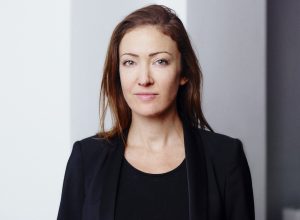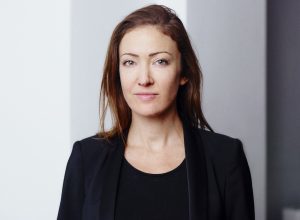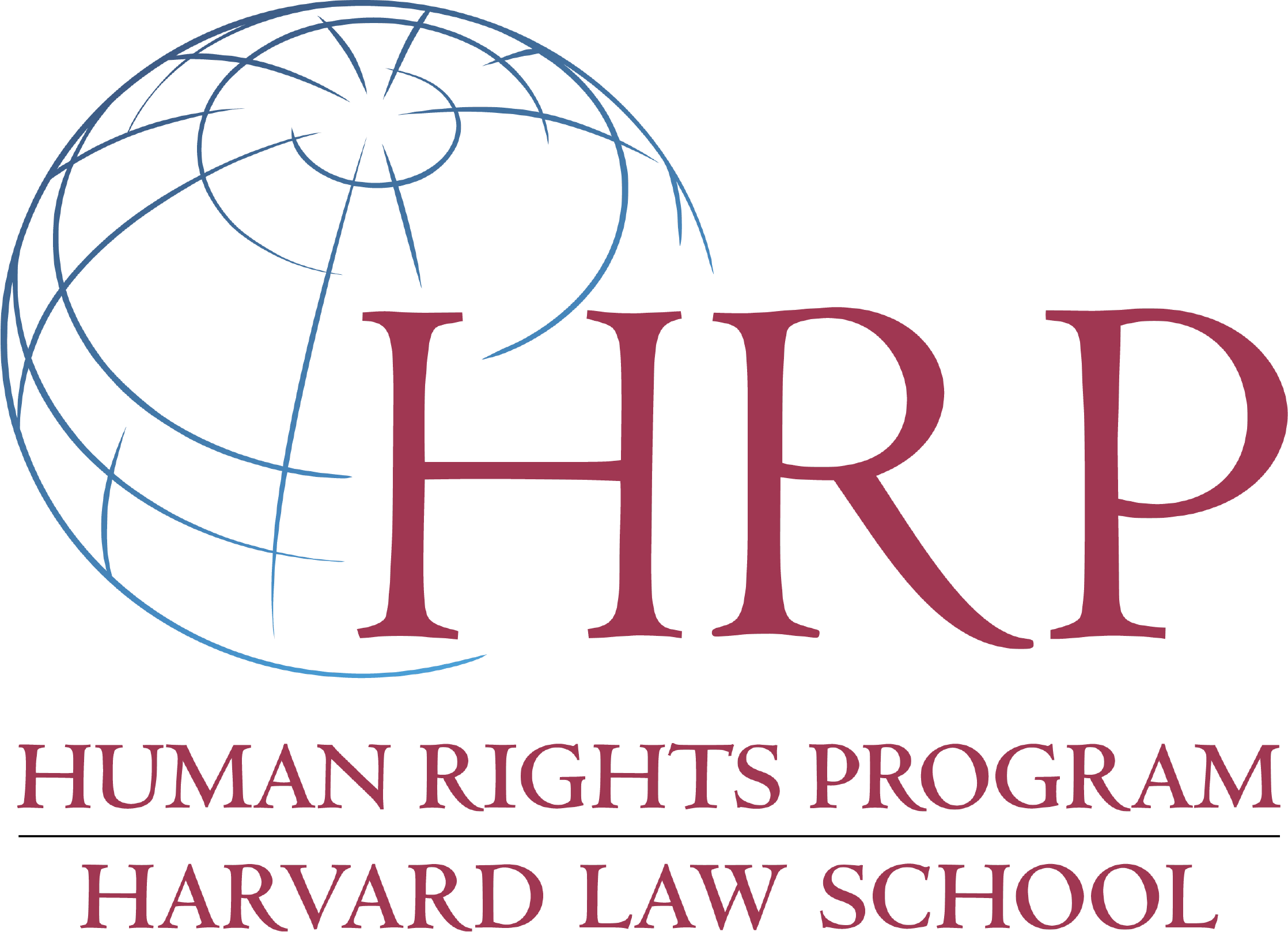
Q&A with OPIA Wasserstein Fellow Lillian Langford JD’13
In February 2019, OPIA Wasserstein Fellow Lillian Langford JD’13 spent a few days in residence at HLS, where she gave a talk co-sponsored by the Armed Conflict and Civilian Protection Initiative on “Sustainable Justice: Lessons from Twenty Years of Domestic War Crimes Prosecutions in Bosnia and Herzegovina” (video linked in title) that reflected on her career and current role as Head of Rule of Law for the OSCE Mission to Bosnia and Herzegovina.
During law school, Lillian was an active member of the International Human Rights Clinic; after graduating, she was awarded a Henigson Fellowship in Human Rights. Following her recent visit to HLS, she spent a few moments reflecting to the Human Rights Program (HRP) on that experience, her career to date, and giving advice to future advocates interested in a path like hers. Read her Q&A below, and don’t forget to apply for the Henigson (and the Satter) Fellowships in Human Rights. Applications are due March 15!

HRP: You spent three semesters in the International Human Rights Clinic [IHRC]. How did your HLS experience – specifically your time in the Clinic – influence your career in government and public service?
Lillian Langford: The time I spent working with the IHRC was absolutely fundamental to the work I’m doing now. Working on two quite different projects with the Clinic and doing the corresponding coursework, I learned how to perform legal analyses in a human rights setting but also developed practical skills that are fundamental to my current career, including interviewing, advocacy, and – perhaps most important of all – operating effectively as a member of a diverse team. In particular, working on an international humanitarian law-related project that involved research on, and travel to, Myanmar with the Clinic was extremely important for honing both my legal and presentation skills, both of which figure heavily into the work I do now.
Beyond all the learning I did in the clinic, though, I have to say that just being in that environment and working alongside the brilliant, enthusiastic, and supportive practitioners who run it, really reaffirmed my commitment to a career in international human rights and gave me the confidence to pursue one.
HRP: After graduating from Law School, you received a Henigson Fellowship for Human Rights. How did your fellowship year add value to your perspective on international human rights? Were there significant moments or mentors during that year that helped shape that perspective?
LL: Similarly to my experience in the Clinic, I see the fellowship year as an integral part to my overall career path and one without which I wouldn’t be doing what I’m doing now. I spent my fellowship year in Kyrgyzstan with the Open Society Foundation and the Tian Shan Policy Center working on free legal aid legislation reforms, researching gender based violence and its effects on women’s property rights, and teaching law students at the American University of Central Asia. In this setting I learned the ropes of comparative legislative analysis, advocacy at all levels of government and among non-governmental actors, and especially interviewing and analyzing interview data from a diverse range of stakeholders – hundreds overall. I also learned to use my findings to draft analyses that considered not only legal, but also policy ramifications of the situation, and craft appropriate recommendations directed at relevant stakeholders. This experience greatly expanded my understanding of the complexities of justice sector reform processes, including political and other less tangible aspects, and gave me a more nuanced perspective on what being an international human rights practitioner means.
All of these skills translate directly into what I do now as the Head of Rule of Law with the OSCE Mission to Bosnia and Herzegovina. In the Rule of Law Section, we support justice sector reform in BiH through similar mechanisms. Specifically, we use our trial monitoring findings and policy analyses to write public reports with recommendations targeting a broad range of actors involved in the justice system. We also use our expertise and findings to deliver technical assistance in legislative amendment and strategic drafting processes.
In terms of mentors, by far the most impactful time I spent with individuals during my fellowship year was with the small team of research assistants across Kyrgyzstan who helped me identify important stakeholders, conduct interviews, perform analyses of the findings, and, critically, provide context for the information we collected. One of the great benefits of my fellowship year was that it gave me the flexibility to conduct extensive fieldwork and appreciate how vastly different the human rights situation in a remote area is from that in the capital, as well as how different even the understanding of applicable legislation can be. Beyond that, I developed friendships with these research colleagues that persist to this day.
So, in a nutshell: I cannot imagine doing what I’m doing now without having been lucky enough to receive a fellowship from HLS, and I’m so grateful I did. For aspiring human rights practitioners currently at HLS, I’d strongly encourage they apply for one of the several amazing fellowship opportunities that’s offered by HRP and others.
HRP: What do you see as the most pressing or critical human rights or humanitarian law issues in the near future?
LL: I can speak to one of the main issues that I see in my line of work, visible in many jurisdictions across the globe, which is a deteriorating respect for, and trust in, the justice process and the rights that it upholds. This is particularly true in post-conflict countries or those undergoing a major political transition. Justice systems work − where they work − not only because of the enforcement power of the state, but on some level because the citizenry they bind has agreed to adhere to the standards that they uphold and the sanctions they apply. Usually that agreement is based on the populace’s confidence in the process, which is underpinned by basic guarantees of fairness and transparency. When that confidence erodes – often due to corruption, discrimination, or other human rights abuses – citizens can lose faith in the process. At the moment, we are seeing this take place on an alarming scale across the globe.
This loss of confidence in the justice sector can trigger crisis and even violence, which in turn often leads to further abuses and loss of trust. In post-conflict societies, the mistrust seeded by such a process can last for lifetimes. When justice sector actors like judges, prosecutors, and police, are not considered honest brokers by the citizens subject to their actions and decisions, rule of law ceases to exist, and citizens have no recourse to address violations of their rights.
HRP: What advice would you give to aspiring advocates or public-service oriented law students in the current global political climate?
LL: Travel widely and listen with curiosity wherever you go. You never know when you’re going to meet someone interesting and learn something crucial.
Don’t worry about your employment prospects as the main driver for what you’re pursuing. The global political climate is always changing, but there will always be interesting work for committed, hardworking, and flexible people who care and want to make a difference in this world. Take your time in law school exploring all the things that interest and motivate you, and make time to interact with others who are doing the same.
On a concrete level, while you’re still studying: spend all your summers doing public interest work, do as much clinical work as you can, and take advantage of Harvard’s language programs! You’ll find yourself much more employable if you have field experience and language skills on your resume.
HRP: In a career devoted to humanitarian advocacy in conflict, how do you manage the potential for burnout and emotional strain? What lessons in processing in these challenges would you share with future human rights advocates?
LL: I love this question, because this is an issue that’s considered so rarely relative to its importance for being successful in this line of work.
My advice on this is simple: sleep enough! I can’t overstate this. Whatever you sacrifice to make your schedule work, do not make it sleep. I learned several years ago that when I sleep less than 6 hours, I suffer not only in terms of productivity, but in creativity, resilience, memory, and – most importantly – happiness. I plan my schedule around getting those critical hours to let my brain and body recharge, and sometimes that means leaving the office before I want to, being the first to ask for the check at dinner, or not getting to finish the last chapter of the page-turner I’m reading! But it’s worth it for the short- and long-term payoff, and it’s what makes it possible for me to grapple with difficult and emotionally draining subject matter on a daily basis.
I also think it’s critical to make the time to invest in relationships − whether with friends, mentors, colleagues, or a partner. Having someone you trust and can talk to, confide in, and let down your guard with goes a long way to giving you the stamina and mental energy to confront very difficult issues through your work.
Finally, for me, exercise, and specifically spending time in nature, is a great way to unwind and reconnect with the things that I find really important. When I was in law school, stressed over deadlines and exams, I once told my father, “I’m so stressed, I don’t have time to go for a run.” His response was, “If you’re so stressed, you don’t have time NOT to go for a run.” He was right, and I’ve pretty much stuck to that mantra ever since. I’m more productive, energized, and likely to be well-rested if I get in at least a little bit of physical work every day. In mountainous Bosnia and Herzegovina, we are extremely lucky to have access to world-class hiking and skiing across the country. But even if you’re in a big city, just finding some time to go for a walk or jog in a park or garden is a good way to reset your mind and give yourself the space to process whatever difficult topic you’re dealing with in the office.
